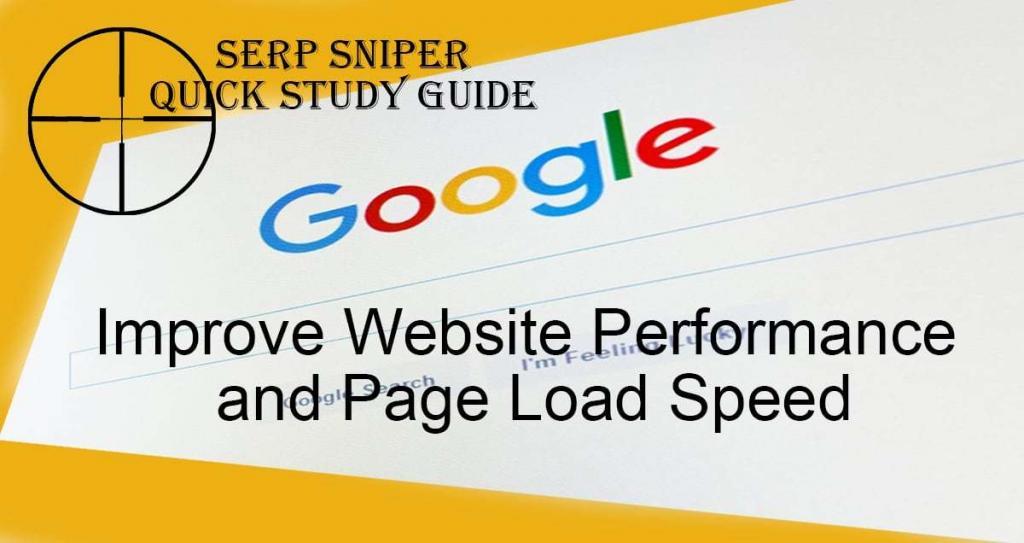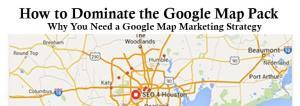10 Tips to Improve Website Performance and Page Load Speed. Every guy I know seems to love anything fast. Some like fast cars, fast boats, fast motorcycles, and maybe the occasional fast women. What’s your fast fantasy? When I was younger it was fast bikes & fast cars.
Today, as a website developer my favorite fasts are fast food and “fast web browsing.” Technology is growing at leaps and bounds; computers are smaller, think apple watch. More powerful, your phone has more computing power than NASA used for the Apollo 11 Moon Launch in 1969. They have faster processors to chew through all the data, millions of zettabytes.
So there is absolutely no reason for a slow website.
Without a doubt your website speed is essential, in fact according to statistics, over 40% of people want a website to load within 2 seconds, and 40% would likely not come back to your site if it takes more than 5 seconds to load. A fast website is a win-win to both parties.
Here is Today’s SEO Quick Study – 10 Best Tips to Improve Website Performance and Page Load Speed.
If you are interested in boosting the speed of your website, it is not as difficult as it seems. Here are some simple tricks to improve your websites speed and overall performance.
Improve Website Performance – Upgrade Hosting Plan
Due to ignorance or lack of funds, people tend to use cheap web hosting plans. It may seem cool at the beginning, but as the website grows, and more content is added, the site will become slow.
Paid hosting is not as expensive as it may seem. Consider all the pros/cons before you upgrade your hosting, it is essential that you understand your options. Here is a good article that explains web hosting.
Optimize Your Files With Gzip
Similar to regular ZIP files compression that you do on your computer. The purpose of Gzip is to reduce the size of your web files. Benefits of Gzip include; minimizing of HTTP request and reduction of response time by close to 80%.
Here’s how it works; When a visitor visits your site, the files become unzipped instantly, saving time and bandwidth. There are two ways to enable Gzip compression, either you do it manually, or you install a compression plugin for your CMS.
At the end of this article you will find a few links to our favorite speed plugins to Improve Website Performance.

Reduce Image File Sizes
Like web pages your images need to be compressed as well. The bigger the size of your image, the more bandwidth and time it consumes to load. Hence, smaller images load faster. See the plugins list for a few optimization plugins to help you reduce the size of your images, and still maintain its quality.
Add Content Delivery Network
A content delivery network (CDN) is a system of distributed servers (network) that deliver pages and other Web content to a user, based on the geographic locations of the user, the origin of the webpage and the content delivery server.
Improve Website Performance with Plugins & Widgets
There are many useful plugins available for your WordPress website. Each plays a role in your website, but you should also consider the fact that each plugin needs resources to run. When you have too many or unnecessary plugins, they consume more resources leading to a slower page. Delete every plugin and widget that is not in use.
Change Your Website Theme
When choosing a theme for your website, it’s not all about how beautiful the theme may be; rather it should be about its performance.
In my opinion, the two best things about using WordPress is theme selection and the ability to change your theme at will. Which is also part of the problem. The theme of your website may seem very simple, but its code could be complex enough to make your website load slowly.
In most cases you can check basic speed by accessing the theme demo. You can also run the theme through a speed performance tester like GTMetrics. BUT, just because it fast fresh out of the box doesn’t mean it will stay that way. Monitor your performance regularly.
Minimize your JavaScript and CSS Files
Having to many JavaScript and CSS files will disrupt your visitor’s experience. Each require an HTTP request. These HTTP requests will slow down the speed of your website. To solve this problem, you should minimize your HTTP request.
WordPress has numerous plugins for minimizing your JavaScript and CSS files. Another simple trick is to put all JavaScript into a single JavaScript file as well as CSS into a single CSS file and load them from the footer.
PRO’s Tip; Consider Using HTTP Keep-Alive – If you have a busy website with lots of content, you should consider using HTTP KeepAlive. When a visitor attempts to download a file, the browser asks the server for permission. This occurs each time you have a visitor. As you can guess the process consumes a lot of bandwidth and memory; this will certainly slow down your website speed.
Optimize Your Database to Improve Page Load Speed
Database Optimization is a very efficient means of improving your website speed and should be part of regular maintenance. As you continually make use of plugins, especially those that store data, statistics, and logs, they consume more data storage. When your storage is filled, your website will become slower. This article may help.
Minimize HTTP Request
As stated above, when there are too many HTTP requests, your website will slow down. The solution to this problem is by combining your CSS, JS script and HTML files. Use only essential elements on your web pages and consider using CSS instead of images.
10 Best Tips to Improve Website Performance and Page Load Speed – In Conclusion;
As a website owner, one of your fundamental concern should be Building a Solid SEO Foundation. Top on that list is how to Improve Website Performance and page load speed, because these are essential ingredient of a successful website. If you are looking for ways to reduce page load time, the above steps would be beneficial, they are simple and don’t require rocket science to apply.
Web Speed Resources:
GTMetrics
WordPress Plugins:
Yoast SEO
Autoptimize
WP Fastest Cache
W3 Total Cache
Content Delivery Networks:
Cloudflare
Max CDN
Key CDN
Web SEO Houston Resources:
Recommended eCommerce Platforms – Small Business eCommerce Solutions
Ecommerce Solutions – Hosted vs Self-Hosted Platforms







